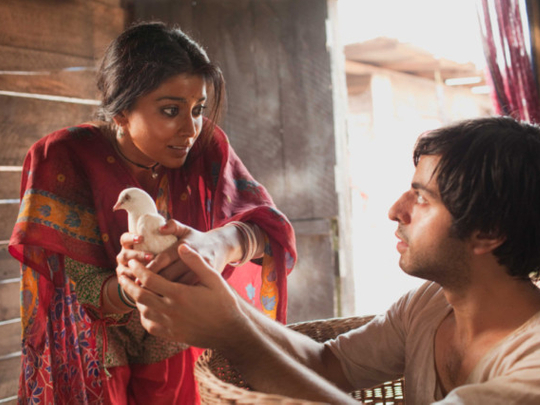
Deepa Mehta’s much awaited Midnight’s Children captures much of India’s recent history in an epic sweep, some of the magical realism of Salman Rushdie’s iconic novel after which it is named, and is even funny.
But persistent as Saleem Sinai’s snot, even unto the new century of cinema, is that exotic India package — snake charmers in red turbans, magicians and slumdwellers who speak English.
The film was received with weak, scattered applause at the Toronto International Film Festival.
First, only a brave heart would attempt to film Rushdie’s much beloved novel, whose key strength is a rambunctious revelling in language, even if the film’s screenplay is by Rushdie himself.
Midnight’s Children is about two children born at the same time that India was born, August 14, 1947, and so are “handcuffed to history”.
A nurse (Seema Biswas) swaps the two babies — Saleem Sinai and Shiva — and switches their destinies. Following their lives till the next generation, the film takes in India’s history.
The first half of the film is gloriously evoked and shot by Giles Nuttgens but later, the editing makes the film seem like a bullet point-version of Indian history. Despite this, tedium sets in at a length of 148 minutes.
There’s a Bollywood touch, with the formula of siblings separated at birth, whose destinies are forever intertwined, and endless coincidences.
Satya Bhabha (Saleem Sinai) is earnest but not quite convincing; Shahana Goswami as his mother brings a mature presence; Rahul Bose as his uncle brings a stiff-upper lip flourish. Nitin Sawhney’s music is evocative.











